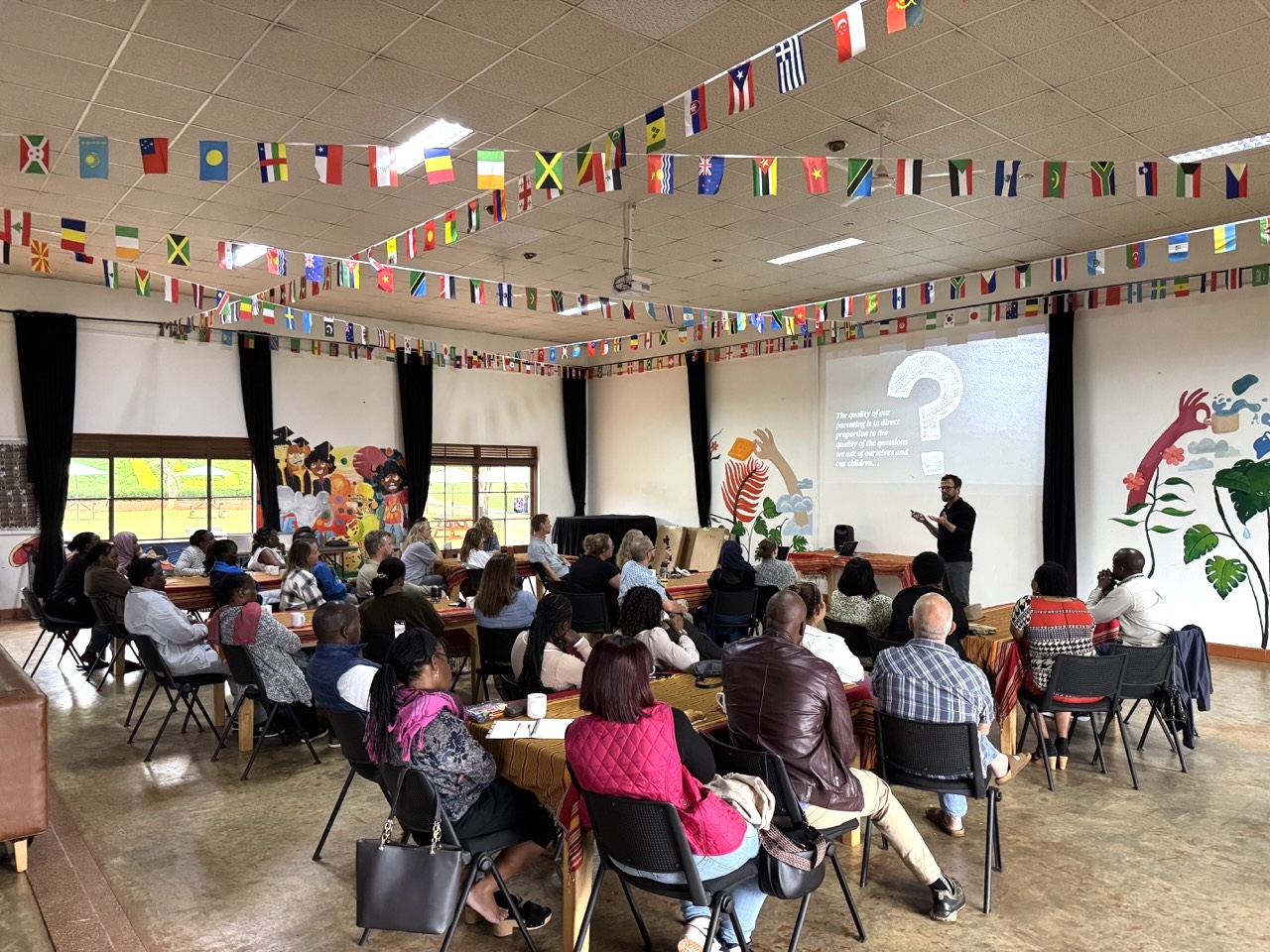.png?command_1=resize&width_1=220)
Today we had a guest speaker, Bradley James Davies, share his wisdom and insights into how we can be better listeners in all of our roles, and in particular as parents.
He began by sharing the difference between our perceptions of our own listening skills and those of others. 74.8% of us think we are good listeners, however we only think 12.1% of other people are good listeners. Bradley pointed out that there clearly is a disconnect between those two numbers, and that the reality is that we can all be lousy listeners.
Bradley went to explain two reasons for this. The first is how much information we can process through different modes: 150 wpm speaking, 300 wpm listening and 3000 wpm thinking. This presents a challenge when we are listening since our capacity to think is only being supplied with 150 wpm, while we have the capacity to think 3000 wpm - which is why we can easily get distracted by our own thoughts when we are listening.

Bradley offered a number of hacks and tips to move next level listening - some highlights of these are listed below:
- Put your phone away - even having a phone visible on the table can cause the speaker to feel that you are not interested. Put your phone away when you are listening with your children.
- Location and time matter - don’t ask your children how their day was as soon as you pick them from school. They are often tired and don’t necessarily want to talk. As Allison Ochs recommended in our previous forum, find a good time to chat. Maybe at bedtime, or over dinner, or while everyone is just having some down time.
- Listen more than you talk: 80/20 rule, listening 80% of the time is the aim with you responding only 20% of the time. Mirroring techniques such as repeating what you are hearing shows you are listening.
- Wait - give space before responding. The longest we wait to respond is generally less than a second. Give them space to say more. What else?
- Curiosity or Convince - take a stance of curiosity not trying to convince. Seek to understand, rather than to be understood.
- Beware of bias - your experiences are not your child's. Avoid retelling your experiences as a way of showing empathy. You are there to listen to their stories, not to share yours.
- Speak last - be the last to speak. Period.
Quality of questions:
- Offer questions that open up the conversation, not closed or questions that shut down or make presumptions.
- Don’t stack questions, put three questions one after the other e.g. So what did you tell them? Did they see what happened? Why do you think they did that?
#ISUParentBlogs #ISUParentForum





.png&command_2=resize&height_2=85)

.png&command_2=resize&height_2=85)
.png&command_2=resize&height_2=85)
.png&command_2=resize&height_2=85)










.png&command_2=resize&height_2=85)




.png)